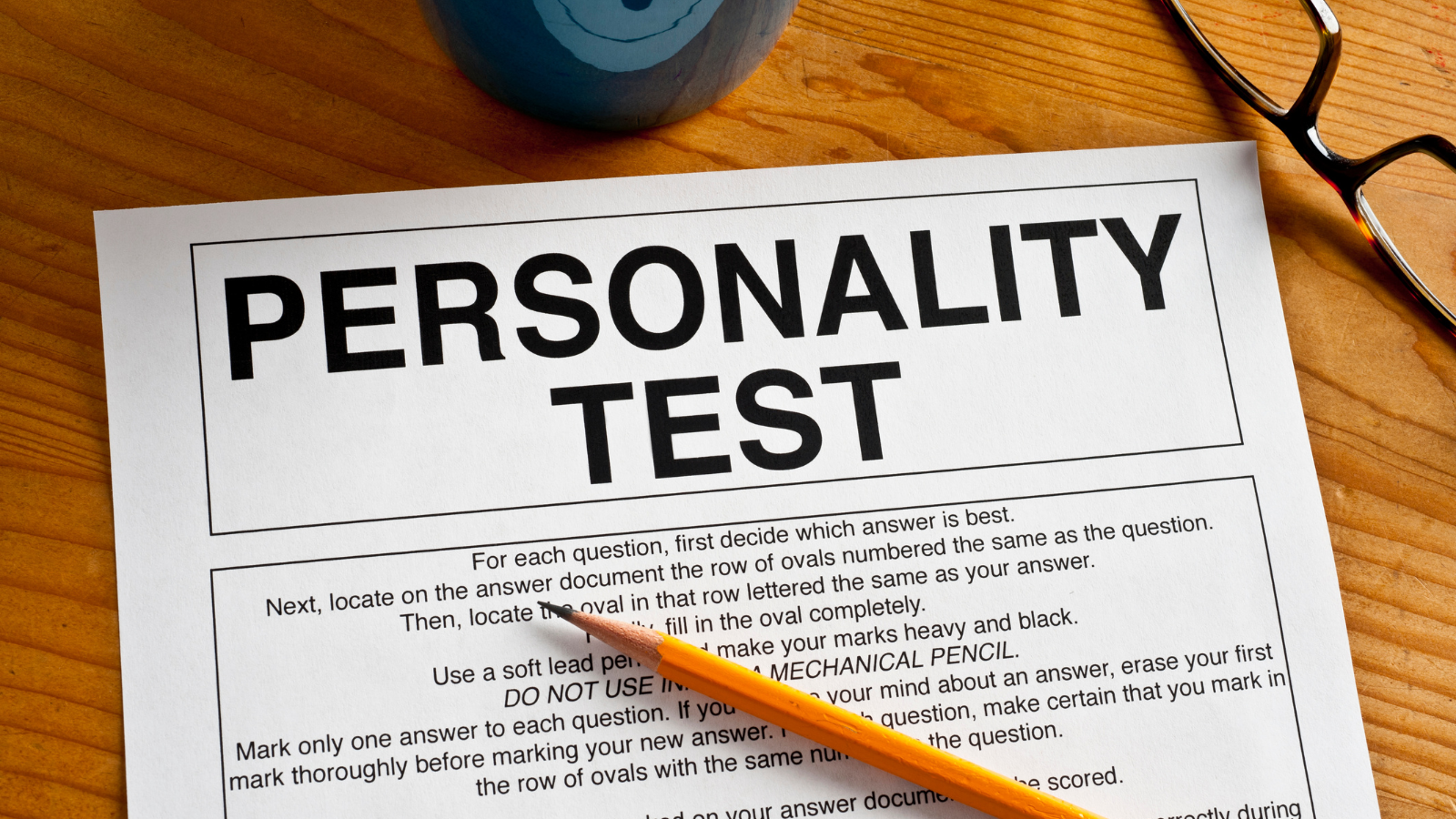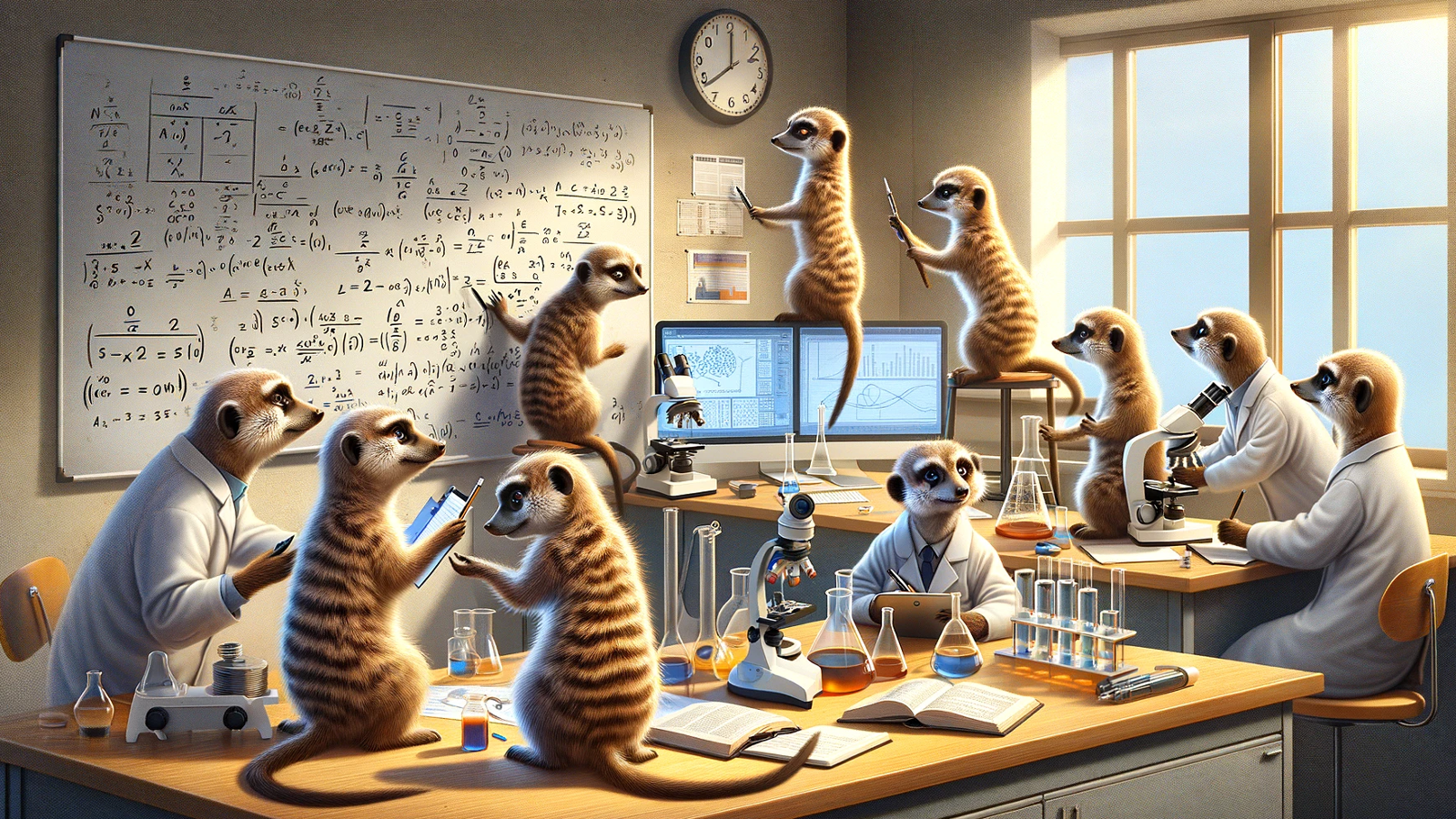The 7 Personality Types in Academic Research: How Each Role Shapes Success
March 1, 2025, 8:11 a.m.

In today’s world, personality archetypes like Alpha, Beta, and Sigma have gained widespread popularity, especially on social media. The Sigma personality type, in particular, has become a trending topic—often romanticized as the lone wolf genius who disrupts traditional hierarchies with independent thinking. But in the structured world of academic research, every personality type plays a crucial role in advancing knowledge.
A successful research team isn’t just about strong leadership (Alpha) or lone innovators (Sigma). It thrives on collaborators (Beta), meticulous workers (Gamma), disruptors (Omega), perfectionists (Delta), and ethical challengers (Zeta). Each personality type brings unique strengths that are essential for groundbreaking discoveries, data accuracy, ethical integrity, and teamwork.
Understanding these personality types can help research teams function more effectively, assigning roles based on strengths rather than forcing individuals into rigid structures. Who drives innovation? Who ensures research integrity? Who refines ideas into publishable work?
In this post, we’ll explore how each personality type best contributes to academic research. Whether you're leading a project, crunching data, or challenging established theories, recognizing these dynamics can enhance collaboration and efficiency in the lab or study group. Let’s break down the essential roles of each personality type in the research ecosystem.
Here’s how the personality types (Alpha, Beta, Sigma, Omega, Gamma, Delta, and Zeta) can contribute to an academic research team, along with a one-word description of their role.
1. Alpha (Leader) – "Visionary"
Alphas are natural leaders who are confident, ambitious, and assertive. They take charge in situations, set clear goals, and inspire others to follow their vision. While they enjoy guiding teams, they also thrive in environments where their leadership and decision-making skills are valued.
Marie Curie exemplified the Alpha personality with her pioneering leadership in the field of radioactivity. As the first woman to win a Nobel Prize and the only person to ever win Nobel Prizes in two different scientific fields (Physics and Chemistry), she broke barriers and led the way for future generations of scientists, making bold decisions and pushing through adversity.
Personality: Confident, dominant, charismatic, and ambitious. Alphas naturally take charge and drive the team toward success.
Academic Contribution: They set the research agenda, secure funding, and ensure the team remains productive. Their leadership helps in networking, presenting at conferences, and publishing in top-tier journals.
Best Role in a Research Team: Principal Investigator (PI) – leads projects, mentors junior researchers, and secures grants.
2. Beta (Supporter) – "Collaborator"
Betas are cooperative, loyal, and diplomatic individuals who excel at supporting others and maintaining harmony within a group. They are often the glue that holds teams together, fostering collaboration and ensuring everyone’s voices are heard. Their strength lies in building positive relationships and encouraging teamwork.
Rosalind Franklin exhibited the Beta personality with her collaborative and supportive nature in the field of molecular biology. While she worked independently on X-ray crystallography to capture images of DNA, she also worked alongside her colleagues to share her findings, and her contributions to the discovery of the DNA double helix were essential to the work of Watson and Crick.
Personality: Loyal, diplomatic, empathetic, and cooperative. Betas work well under leadership and help maintain harmony.
Academic Contribution: They are excellent at teamwork, ensuring smooth collaboration, and often serve as mediators in academic disputes. They excel in co-authoring papers and facilitating interdisciplinary cooperation.
Best Role in a Research Team: Senior Research Associate – manages relationships, supports the PI, and ensures team cohesion.
3. Sigma (Strategist) – "Innovator"
Sigmas are independent, analytical, and self-sufficient individuals who prefer working alone or in smaller, more flexible environments. They value autonomy and often have innovative, outside-the-box ideas. Sigmas bring fresh perspectives and are typically driven by a strong sense of intellectual curiosity and personal freedom.
Albert Einstein is a quintessential Sigma personality with his independent thinking and groundbreaking contributions to physics. Known for his self-sufficiency and intellectual curiosity, he developed the theory of relativity and revolutionized our understanding of space and time, often working alone and thinking outside of traditional frameworks.
Personality: Independent, analytical, strategic, and nonconforming. Sigmas avoid hierarchy but excel in deep thinking and problem-solving.
Academic Contribution: They bring fresh, out-of-the-box ideas to research. They work best autonomously, delving into complex theories, new methodologies, and experimental approaches.
Best Role in a Research Team: Theorist/Methodologist – develops new frameworks, challenges assumptions, and advances groundbreaking research.
4. Omega (Rebel) – "Disruptor"
Omegas are intellectuals who challenge conventional ideas and question established norms. They are often seen as disruptors, bringing new and radical viewpoints to the table, which can lead to breakthroughs in thinking. Though they may not always align with traditional hierarchies, they excel at pushing boundaries and challenging assumptions.
Nikola Tesla exemplified the Omega personality with his radical, visionary ideas that often went against mainstream science. His unconventional theories on electricity and energy, including his work on alternating current and wireless power transmission, challenged the status quo and led to many revolutionary discoveries, despite being initially dismissed by many of his contemporaries.
Personality: Eccentric, intellectual, unconventional, and skeptical of authority. They prioritize curiosity and knowledge over prestige.
Academic Contribution: They question existing paradigms, challenge mainstream theories, and introduce radical ideas that others might overlook. They are essential for pushing boundaries in research.
Best Role in a Research Team: Radical Thinker – explores unconventional theories, questions norms, and fuels academic debate.
5. Gamma (Worker) – "Executor"
Gammas are hardworking, dependable, and practical individuals who focus on completing tasks efficiently and reliably. They thrive on getting things done and prefer hands-on work that leads to tangible results. Gammas are often the ones who keep the wheels turning behind the scenes, ensuring that projects move forward smoothly.
Thomas Edison represents the Gamma personality through his tireless work ethic and practical approach to invention. Focused on bringing tangible solutions to everyday problems, Edison invented the electric light bulb and phonograph through relentless experimentation and attention to detail, emphasizing the importance of execution over theory.
Personality: Hardworking, persistent, practical, and results-oriented. They focus on getting things done rather than seeking leadership or prestige.
Academic Contribution: They ensure research progress by managing experiments, collecting data, and handling logistics. They are the backbone of any research team.
Best Role in a Research Team: Lab Manager/Data Analyst – ensures experiments run smoothly, organizes datasets, and ensures results are replicable.
6. Delta (Perfectionist) – "Refiner"
Deltas are detail-oriented, disciplined, and perfectionistic individuals who are dedicated to mastering their craft. They thrive in environments that require precision and are often the ones who catch the small details that others might miss. Their commitment to quality ensures that research and work are always at the highest possible standard.
Richard Feynman embodied the Delta personality with his meticulous attention to detail and dedication to understanding the fundamental laws of nature. His work in quantum mechanics and his clear and precise teaching style exemplified a commitment to refining complex concepts into accessible, accurate theories, while maintaining high standards in both his personal and professional life.
Personality: Detail-oriented, disciplined, reserved, and dedicated to mastery. Deltas thrive on refining and improving work.
Academic Contribution: They ensure accuracy in research, check for errors in data, and fine-tune manuscripts before publication. They are key in ensuring research integrity.
Best Role in a Research Team: Editor/Reviewer – proofreads papers, refines arguments, and ensures research meets the highest standards.
7. Zeta (Challenger) – "Ethicist"
Zetas are ethical, justice-driven, and unafraid to question authority when it comes to fairness and integrity. They prioritize transparency and ensure that all actions taken in a team align with ethical guidelines. Zetas play a crucial role in maintaining the integrity of research and making sure all team members adhere to standards of honesty and fairness.
Lise Meitner demonstrated the Zeta personality through her unwavering ethical stance in science. As a physicist who co-discovered nuclear fission, Meitner advocated for responsible use of scientific discoveries and stood firm in her moral convictions, despite facing significant discrimination and being excluded from the Nobel Prize awarded to her colleagues for the discovery of nuclear fission.
Personality: Independent, justice-driven, and unafraid to question authority. Zetas prioritize ethics and fairness above all else.
Academic Contribution: They ensure research follows ethical guidelines, prevent misconduct, and advocate for transparency in data and publications.
Best Role in a Research Team: Ethics Officer/Compliance Advisor – safeguards integrity, oversees ethical approvals, and ensures fair practices in research.

Summary of Academic Research Roles by Personality Type:
| Personality Type | One-Word Role | Best Contribution to Research |
|---|---|---|
| Alpha | Visionary | Leads the research direction, secures funding, and drives publications. |
| Beta | Collaborator | Fosters teamwork, ensures smooth cooperation, and co-authors research. |
| Sigma | Innovator | Develops novel theories, introduces new methodologies, and works independently. |
| Omega | Disruptor | Challenges mainstream ideas, proposes radical concepts, and fuels debate. |
| Gamma | Executor | Manages experiments, organizes data, and ensures projects progress. |
| Delta | Refiner | Checks accuracy, fine-tunes manuscripts, and ensures research quality. |
| Zeta | Ethicist | Oversees ethical compliance, prevents misconduct, and upholds academic integrity. |
How Do I Play My Role?
Your own personality can greatly influence the role you're most comfortable playing in a research team. For example, if you're naturally an Alpha, you might gravitate toward leadership positions, or if you're a Sigma, you may prefer working independently and coming up with innovative ideas. However, it’s important to remember that you aren’t confined to just one role based on your personality. If the success of the project requires a different approach, you can step outside your usual comfort zone and embrace another role. Perhaps a Beta would take on a more leadership-oriented task, or a Gamma might step up to challenge ideas. Flexibility is key—while you may naturally excel in one area, being adaptable allows you to contribute more effectively to the team, especially in complex or high-stakes situations. Playing a role outside your usual personality type can be an opportunity for growth and can help the team reach its goals more efficiently. Ultimately, it's about balancing your strengths with the needs of the project and working together to drive success.
It’s always a good practice to be explicit about which tasks each team member will take on in a research project. Clearly defining roles and responsibilities helps prevent overlap, ensures accountability, and makes collaboration more efficient. One useful tool to achieve this clarity is the Responsibility Assignment Matrix for Research Projects (RATIOS), which outlines who is responsible for each task and clarifies the level of involvement expected from each team member. By using a RATIOS you can map out tasks in a way that aligns with each person's strengths, making the most of the team's diverse personalities. For a deeper dive into how to implement this approach effectively, check out this blog post on Responsibility Assignment Matrices for Research Projects here. This method not only promotes transparency but also ensures that every member knows their role and how they contribute to the overall success of the project.
Conclusion: The Meerkat Mentality—Thriving Through Teamwork
Academic research teams function best when they operate like a meerkat clan—coordinated, efficient, and aware of each member’s role. In the wild, meerkats thrive because they instinctively understand their strengths: some stand guard, others forage for food, while the most experienced members guide the group. No one tries to do everything alone, yet together, they survive and flourish.

In research, the same principle applies. The Alpha may lead the charge, but without the Beta fostering collaboration, the Sigma thinking outside the box, or the Gamma handling the groundwork, the team would struggle. The Delta ensures precision, the Omega challenges assumptions, and the Zeta safeguards ethical integrity—each playing a vital role in the academic ecosystem.
A research team that understands and respects these natural dynamics is more productive, innovative, and resilient. Too many leaders without executors? Chaos. Too much innovation without structure? Disarray. But when strengths are balanced, the team becomes an unstoppable force of discovery.
Like a clan of meerkats standing tall against the horizon, the best research teams thrive not because of individual brilliance alone, but because each member plays their role with purpose—working together to push the boundaries of knowledge.